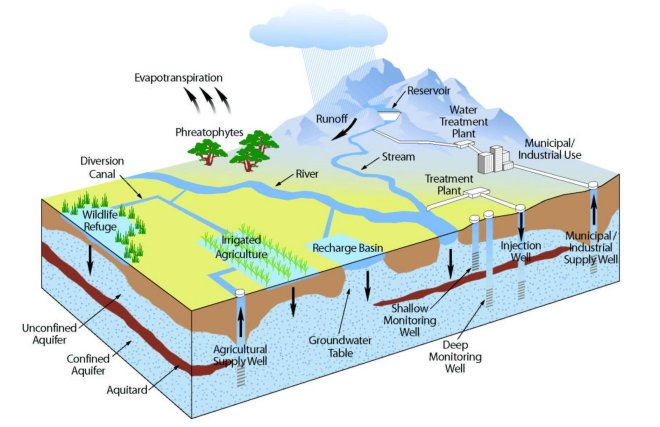|
THE NONEXISTENT GROUNDWATER DATA
In the Fall of 2014, I spent a sabbatical leave at the
Technical University of Loja, in Loja, Ecuador,
researching the new subject of
ecohydroclimatology.1
With the assistance of a local colleague,
we examined the available local climatological and
surface-water data, which led to the paper "Ecohydroclimatological research along the Catacocha-Zamora transect, Loja and Zamora-Chichipe, Ecuador." 2
After examining the surface-water data, I asked my colleague about the groundwater data.
"There is no groundwater data because we do not pump
groundwater in the Loja valley."
I immediately realized that, historically, there has been no need
to pump groundwater in the
Loja valley. The available surface water has been sufficient to
satisfy all needs, natural and anthropogenic.
With 900 mm of mean
annual precipitation, i.e., a subhumid climate, the Loja valley sits near
the middle of the climatic precipitation spectrum.
3, 4
Reflecting on the experience, I realized that groundwater is
typically used where surface water is scarce, particularly
in semiarid and arid regions, or where
intense water development is based on the use of groundwater, as is the practice of
many developed countries.5
1
Ponce, V. M. 2015. Ecohydroclimatological research: The case for
geomorphology.
2
Oņate, F, and V. M. Ponce. 2015.
Ecohydroclimatological research along the Catacocha-Zamora transect, Loja and Zamora-Chichipe, Ecuador,
Tecnología y Ciencias de Agua, Vol. VI, No. 6, November-December.
3
Ponce, V. M., R. Pandey, and S. Ercan. 2000.
Characterization of drought across climatic spectrum.
Journal of Hydrologic Engineering, Vol. 5, No. 2, April, 222-224.
(republished online 2015).
4
Ponce, V. M. 2014.
The 800-mm isohyet: Health and hope. EWRI Congress: International Perspectives on Water Resources and the Environment, Quito, Ecuador, January 8-10, 2014. Also on video.
5
Alley, W. M., T. E. Reilly, and O. L. Franke. 1999.
Sustainability of ground-water resources. U.S. Geological Survey Circular 1186.
6
Scanlon, B. R., K. E. Keese, A. L. Flint, L. E. Flint, C. B. Gaye, W. M. Edmunds, and I. Simmers. 2006. Global synthesis of groundwater recharge in semiarid and arid regions. Hydrological Processes, 20, 3335-3370.
7
Ponce, V. M. 2007.
Sustainable yield of groundwater. http://ponce.sdsu.edu/groundwater_sustainable_yield.html
| ||
|
| 200510 09:00 |
